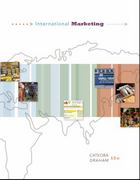Question
In this problem, we'll study what happens in the basic principal-agent model if the principal is restricted in terms of the fixed payment / participation
In this problem, we'll study what happens in the basic principal-agent model if the principal is restricted in terms of the fixed payment / participation fee that can be charged. The model is essentially identical to that of lecture 1b. The agent's and principal's payoffs are = 1/ 2 2 , = .
Output equals the agent's effort, = . The agent has zero outside option, = 0. The timing of the model is as usual:
step 1. Principal offers agent an incentive scheme of the form = + x
step 2. Agent may accept or reject the offer. If he rejects, he receives his outside option = 0 (and the principal receives = 0).
step 3. If agent accepts, then he chooses e
step 4. Principal pays agent = + .
We first remind ourselves of the result from the basic model, where there are no restrictions on what participation fee the principal can charge.
a) Work out the agent's payoff-maximizing choice of (as a function of ) in step 3, and the principal's payoff maximizing choice of and in step 1. You should verify that = 1/2
For the rest of this question, we'll consider the optimal incentive scheme if the principal is restricted to choose to be equal to an amount fixed by law, = . Assume that 1/2 . We will guide you through the calculations step-by-step
b) Given that the principal is required to set = : suppose (only for this part (b)) that the agent is always forced to accept the principal's offer in step 2. Under this assumption, what would the principal's payoff-maximizing choice of be in step 1?
c) Given that the principal is required to set = , what range of incentive strengths would the agent be willing to accept in step 2? (Your answer should be given in terms of a range of values, e.g., , and should depend on .)
d) Given that the principal is required to set = , what range of incentive strengths would the principal be willing to offer the agent in step 2? Remember that the principal would rather not offer the agent a contract if it would result in the principal obtaining a negative payoff, < 0.
e) Combine your answers from (c) and (d) to get, for each value of , a range of incentive strengths that is acceptable to both principal and agent. For what values of does this range include your answer from (b)? You should conclude that, for these values of , the principal will optimally choose in step 1 to equal your answer from (b).
f) Suppose lies below the values of that you calculated in (e) - so that the agent would not accept an offer with the incentive strength from (b). What incentive strength , as a function of , will the principal optimally choose in step 1?
g) Combine your answers from (e) and (f) to describe exactly (in math terms) how the principal's optimal choice of incentive strength varies as increases from 1/2 to zero. You should find that is initially decreasing as increases from 1/2 to 1/8, then remains constant as increases from 1/8 to 0. Explain, in words, why the principal optimally chooses as you have described.
h) Suppose that the principal, instead of being restricted to set exactly = , was allowed to choose any . Without doing any calculations: would the principal choose to be strictly larger than the minimum requirement ? Why / why not?
Step by Step Solution
There are 3 Steps involved in it
Step: 1

Get Instant Access to Expert-Tailored Solutions
See step-by-step solutions with expert insights and AI powered tools for academic success
Step: 2

Step: 3

Ace Your Homework with AI
Get the answers you need in no time with our AI-driven, step-by-step assistance
Get Started


